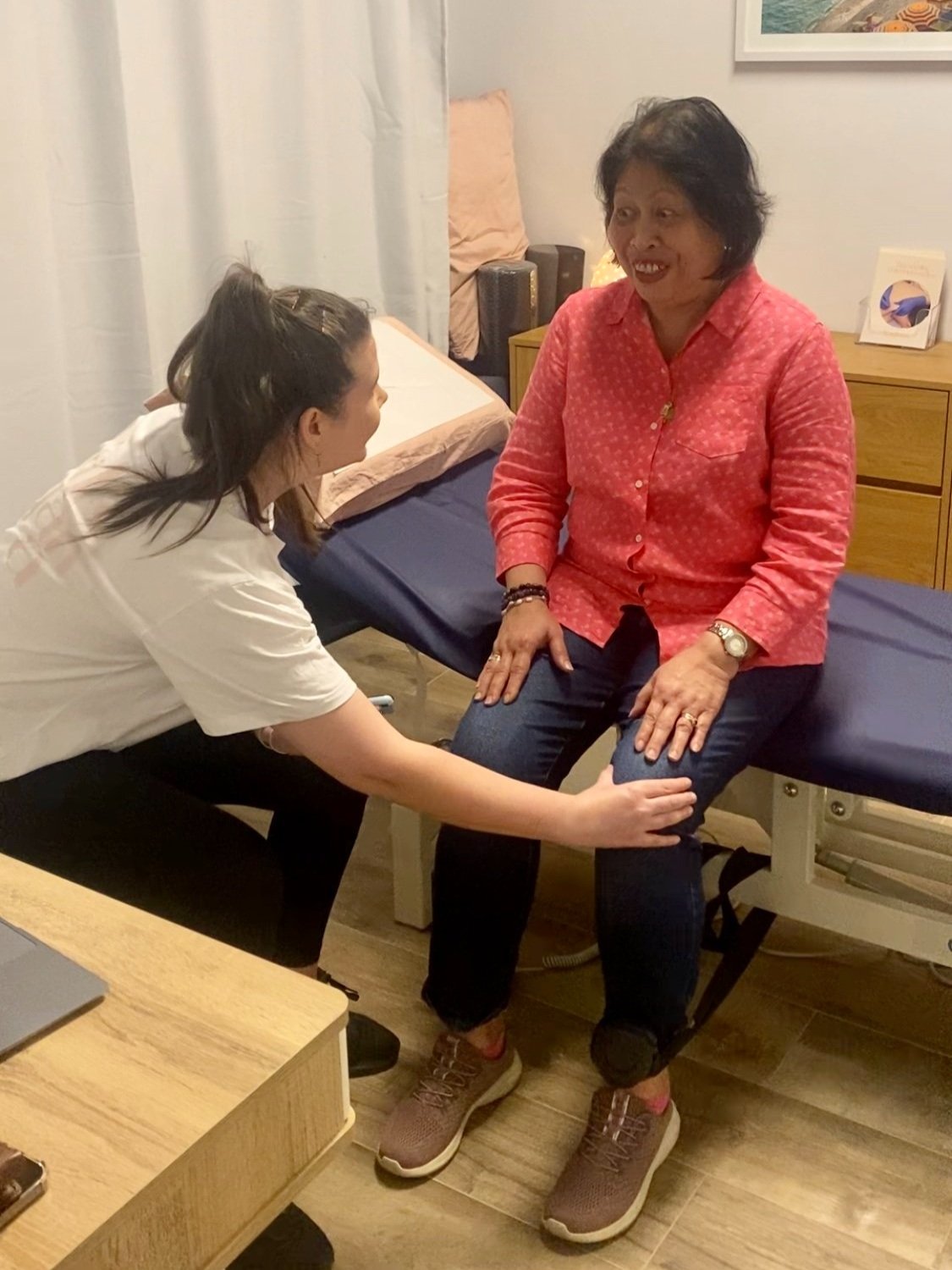Knee Osteoarthritis: Do I Need Surgery or Can Physiotherapy Help?
Knee osteoarthritis (OA) is a common condition affecting many adults, particularly those over 50. If you’re experiencing knee pain, stiffness, or difficulty with daily activities like walking or climbing stairs, you may be wondering - do I need knee surgery? Or are there other effective treatments? Let’s dive into the latest evidence-based recommendations and explore the GLAD® Australia program as a proven non-surgical option.
Understanding Knee Osteoarthritis
Osteoarthritis is a whole joint condition that leads to the breakdown of cartilage, causing pain, swelling, and reduced mobility. Common symptoms include:
Knee stiffness, especially in the morning or after sitting for long periods
Pain with activity, such as walking or standing for extended periods
Swelling or a feeling of warmth around the knee
Reduced range of motion
Clicking or grinding sensations
Do I Need Surgery for Knee Osteoarthritis?
The decision to undergo knee surgery, such as a total knee replacement, depends on several factors, including pain severity, mobility limitations, and response to conservative treatments. Research shows that surgery should be the last option when managing knee OA. Guidelines recommend starting with non-surgical interventions, including exercise and education programs, diet and nutrition and pain relief as needed. This is where the GLAD® Australia Program comes in!
The GLA:D® Program: A Proven Non-Surgical Solution
The GLA:D® (Good Life with osteoArthritis: Denmark) program is an internationally recognised initiative developed by researchers in Denmark to help individuals with hip and knee osteoarthritis (OA) manage their symptoms effectively. It has been successfully implemented in various countries, including Australia, where it has shown significant benefits for participants.
Key Components of the GLA:D® Program
The GLA:D® program comprises several essential elements designed to empower participants with knowledge and skills to manage their OA:
Education Sessions: Participants attend two education sessions that provide comprehensive information about OA, its progression, and effective management strategies. These sessions aim to enhance understanding of the condition and promote self-management skills.
Supervised Exercise Therapy: Over six weeks, participants engage in 12 supervised exercise sessions, each lasting about 60 minutes. These sessions focus on neuromuscular exercises that strengthen the muscles around the affected joints, improve joint stability, and reduce pain. The exercises are tailored to individual capabilities and are designed to be incorporated into daily activities.
Movement Strategies: The program teaches participants proper movement patterns to minimise joint stress during daily activities. This includes techniques to improve posture, balance, and functional movements, thereby enhancing overall joint function and reducing discomfort.
Evidence-Based Benefits of the GLA:D® Program
Extensive research and data from the GLA:D® program have demonstrated significant benefits for participants:
Pain Reduction: On average, participants experience a 36% reduction in pain intensity, leading to improved comfort during daily activities.
Decreased Medication Use: Many participants report reduced reliance on pain medications, contributing to overall health and well-being.
Enhanced Joint Function: The program leads to clinically meaningful improvements in joint confidence and physical function, enabling individuals to engage more actively in their daily lives.
Reduced Need for Surgery: By effectively managing symptoms through education and exercise, participants often perceive a decreased need for surgical interventions.
Implementing the GLA:D® Program in Clinical Practice
The GLA:D® program is designed to be delivered by certified clinicians, including physiotherapists and exercise physiologists, in various settings such as private practices, community health centers, and hospital outpatient facilities. The structured approach ensures that participants receive consistent, high-quality care tailored to their individual needs.
We are proud to offer the GLAD® program at our Hurstville, Sydney Clinic! Run by our certified physiotherapist, Alannah.
When Might Surgery Be Necessary?
Surgery may be considered if:
Pain persists despite completing a structured exercise and education program like GLA:D®
Severe joint damage is confirmed through imaging
Mobility is significantly affected, impacting quality of life
Conservative treatments, including physiotherapy and weight management, have not provided relief
Physiotherapy for Knee Osteoarthritis in Hurstville
If you’re in the Hurstville area and looking for knee osteoarthritis treatment, our physiotherapy clinic offers evidence-based programs, including the GLA:D® program. We provide:
Personalised exercise programs
Hands-on therapy to improve mobility and pain management
Guidance on lifestyle modifications to support long-term joint health
Take the First Step Toward Pain Relief
The GLA:D® program offers a structured, evidence-based approach to managing hip and knee osteoarthritis without surgery. By focusing on education, supervised exercise, and proper movement strategies, participants can achieve significant pain relief, improved function, and a better quality of life. If you're experiencing symptoms of osteoarthritis, consider enrolling in the GLA:D® program to take proactive steps toward managing your condition effectively.
Contact us today at Kaylana Wellness Collective to start your journey to stronger, healthier knees!
For more information on GLAD®, click here.


